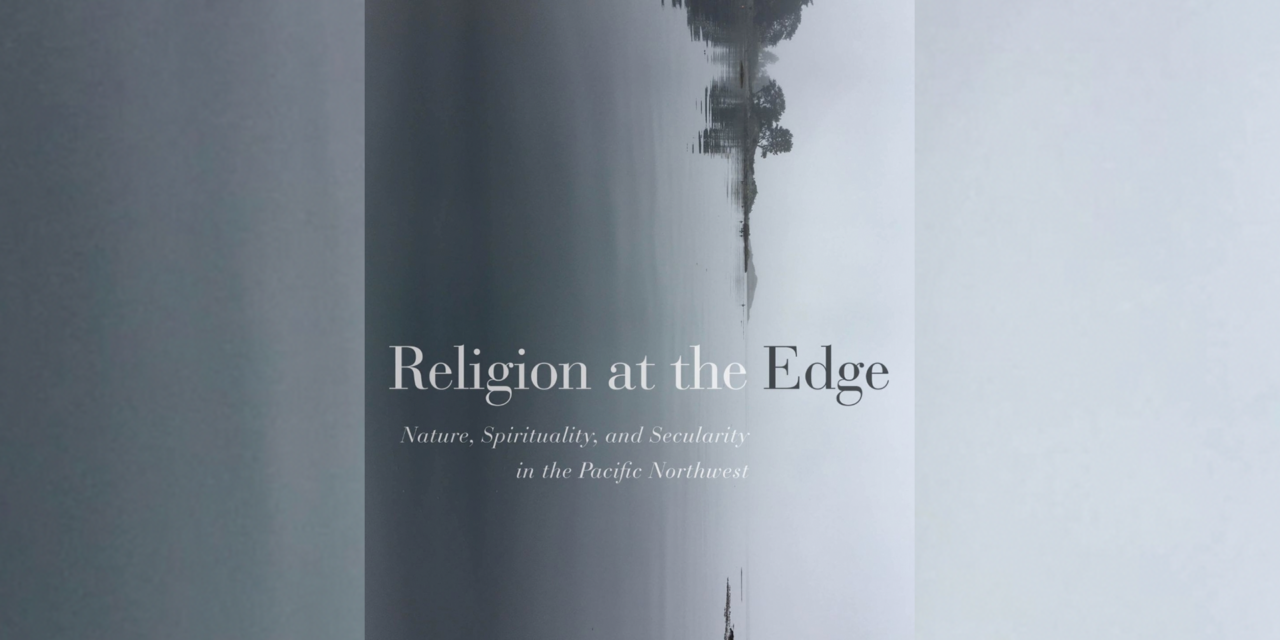The following is a review of Religion at the Edge: Nature, Spirituality, and Secularity in the Pacific Northwest. This book is distributed by the University of Chicago Press on behalf of the University of British Columbia Press.
Like a topographical map of the Cascadian bioregion, Religion at the Edge: Nature, Spirituality, and Secularity in the Pacific Northwest sets out to chart the religious landscape of Cascadia, from Washington and Oregon in “Cascadia South” to British Columbia in “Cascadia North.” In this book, researchers explore the implications of secularization, differences in perspectives across the Canada/US border divide, and barriers to religious involvement in a “post-institutional liberal environment.”
The data, collected in survey responses and focus-group gatherings in the major city centers of Cascadia (Victoria, Vancouver, Seattle, and Portland), illumines the people of Cascadia’s reverential naturalism and lived faith, which focuses on embodiment and participation within the broader natural world. According to those surveyed, Cascadia’s “frontier” quality remains in the inheritance of irreligion or redefined religious engagement. Importantly, this project also recognizes the complexities of religious affiliation in a region where colonizing forces historically marginalized indigenous expressions of faith.
I deeply relate to the stories of the interviewees as a native of the Pacific Northwest, myself. I’m a cradle Presbyterian, staying within my family’s faith as I followed the path of Christian ministry and ordination. The stories in this volume present my trajectory as something of an anomaly. Rather than inheriting religion, Cascadians more commonly explore and articulate their faith in ways that make contextual sense and they live it out in the region’s beauty.
This project also provides helpful examples of Cascadian people’s sensibilities regarding formalized religion. I serve as pastor to a neighborhood Presbyterian church in Bellingham, WA, a city that sits almost equidistant between the major cities of Seattle and Vancouver. Religion at the Edge accurately explores the perspectives of the Cascadians with whom I interact—both religious and irreligious, progressive and evangelical—and how they practice their faith. The “libertarian” quality of community action in Cascadia; the desire to connect a reverential naturalism to the sacred traditions of faith; the profound impact of racial and ethnic groups (and the lack of diversity in many of our congregations as an outcome of colonialism in Cascadia’s history)—these all impact how religious and irreligious people understand the role of faith communities. By reading this book, I feel, as a pastor, the sense of getting an inside look at the religious mindset of our region.
Sometimes it feels as if the outreach and evangelistic endeavors of faith communities fall flat amongst Cascadians. But while the data shows increasing numbers of people who lack a denominational or religious affiliation, it also highlights the desire for meaning-making experiences and connection to the environment that illuminate the hope for something greater. The statistics can be depressing, with increasing numbers of folks walking away from the faith of their grandparents (or, perhaps, great-great-grandparents who never lived in Cascadia). But amidst these statistics is a reawakening and reimagining of the topography of faith. This data can be freeing for faith communities who are willing to discern and explore fresh expressions of their shared life together.
Religion is far from dead in Cascadia. As we live here upon “the Edge” of North America, there is a sense of possibility for what religious practice and community can look like for the diverse community of Cascadia.

